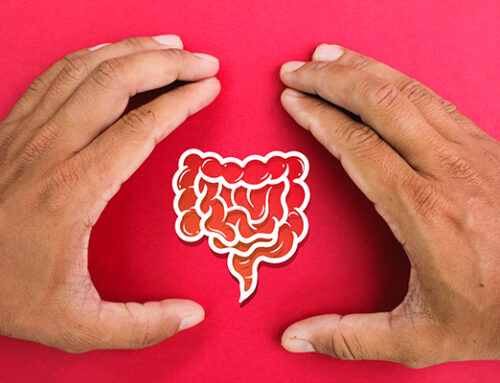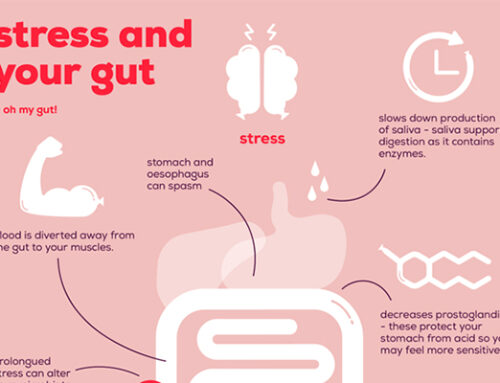
By now, most of us have heard the term “leaky gut”; but what exactly does it mean, and how might it apply to you? Well, let’s dig in and figure this out.
“All Disease Begins in the Gut”
Wise words, declared by Hippocrates 2500 years ago, he was a Greek physician known as the father of modern medicine. This statement is just as prevalent today as it was all those years ago.
In just the last 100 years, our way of living has drastically altered. Our modernized, tech-driven lifestyles come with many perks (the world wide web!), life-saving technologies in medicine, and the numerous everyday conveniences that we most likely take for granted.
However, our daily lives have become much too busy, stressful, and detached from nature. We no longer eat what we grow and raise at home. What happened to real food? Instead, we eat convenient, highly processed, industrialized, genetically modified (GMOs), and pesticide-ridden foods. Even though we know that exercise is essential to our overall health, these new sedentary lifestyles make it hard to get as much physical activity as we should. (Like being stranded at our desks. Turning into zombies on the couch.)
Unknowingly, we are exposed to health-compromising toxins every day, from heavy metals in the air we breathe to the industrial pollutants in the environment to the toxic chemicals in our drinking water to the antibiotics, hormones, and pesticides in our food. The combined stress of modern living takes a toll on our health, especially on our digestive system.
Today’s scientists and medical professionals have finally reached Hippocrates’ ancient wisdom. The most recent research concluded that at least 90% of all current health issues and diseases begin in the gut!
Chronic diseases such as depression, arthritis, heart disease, and diabetes are rising to epidemic quantities – and they can be linked back to an irritated and inflamed gut. This is Leaky Gut! Even some minor illnesses, such as heartburn, eczema, constipation, hormonal imbalance, joint pain, and chronic fatigue are also traced back to gut dysfunction.
A compromised digestive track means elevated levels of toxins in the body – causing inflammation, contributing to disease, resulting in weight gain, and promoting premature aging. When our gut is compromised, the whole body is at risk. That’s because the digestive, immune, nervous, and endocrine systems all communicate and interact with one another. When your gut is not functioning correctly, it jeopardizes the actions of the other systems in your body.
The gastrointestinal (GI) tract is the powerhouse of the body. It utilizes nutrients from the food we consume and delivers energy to every cell of the body. It is a specialized, amazingly elaborate system, and every part plays crucial functions.
When our guts are healthy, we have vibrant energy. Our immune systems are robust, our minds are sharp, and our glowing skin reflects our vitality. But when our guts are compromised and inflamed, all systems in our body can potentially suffer.
An imbalance of bacteria, viruses, and parasites causes chronic inflammation and wreak havoc on our GI tract. Exposure to pesticides and herbicides in our food further this deterioration to our gut wall. This disruption causes uncomfortable gas and bloating symptoms, depletes our energy and nutrient absorption, and contributes to brain fog and other chronic pain and illness.
LEAKY Gut, also known as increased intestinal permeability (think tiny holes in your gut wall), creates a condition where toxins and nasty bugs literally “leak” into your bloodstream. It’s a condition in which the intestinal lining, also known as tight junctions, loses its integrity and becomes an entry point for inflammatory compounds to leak into the blood. This leakage puts every organ and its function at risk.
The lining of our intestines is only one cell thick, which may seem thin. But this gut barrier separates us from the outside world, allowing beneficial nutrients from food to get through while keeping toxins and pathogens out. A healthy gut regulates this barrier between the intestines and bloodstream. So, when our microbiome is imbalanced and exposure to toxins in our food causes permeability of our intestinal lining, we are now at risk of inflammatory compounds and cellular-damaging toxins entering our body. Imagine the flood gates are open, and every undesired particle or pathogen enters the bloodstream, and an immune response is triggered. So, if the gut remains in this state, the immune system will be on the constant attack and in overdrive.
When “leaky gut” remains an issue, it leads to chronic and total body inflammation.
This condition is burdening on the body and often leads to the development of other diseases. It is common for people with leaky gut to develop autoimmune ailments such as IBS, Crohn’s disease, rheumatoid arthritis, multiple sclerosis, and many others.
The Role of the Microbiome
According to the Human Microbiome Project, around ten trillion bacteria live in your body, while you have only one trillion human cells. In a very practical sense, your microbiome makes up who you are. You are more bacteria than human, and your health heavily depends on the health of your gut.
The most vital part of your GI health is your gut bacterial community, also known as your microbiome. It consists of hundreds of interacting species that co-evolved with you in your gut and other parts of your body.4
In a world where bacteria or ‘germs’ have been demonized, we need to remember that bacteria can not only be good for us, but are actually vital to our survival. We rely on these little microbes, commonly known as ‘good bacteria,’ for many important bodily processes, like:
- Immune response
- Protection from pathogenic species
- Maintaining healthy digestion
- Balancing our hormone levels
- Healthy cognitive function
Moreover, these bacteria protect the gut barrier, and work to ensure that the cell wall junctions stay tight and healthy, thus preventing a leaky gut. They are permanent residents of the body, and most of them are found in the colon. Every person’s first contact with bacteria is in utero or at birth, and their bacterial community changes during their lifetime.
Microbiota patterns vary from person to person due to different environmental conditions, such as medication, infections, and toxic exposure. In addition, hygiene, age, and genetics also affect the microbiome community.5
The interaction between you and your gut microbiome determines whether you stay fit or become unhealthy. Disturbances in the normal gut microbiota lead to bacterial translocation (bacterial overgrowth in non-ideal parts of the GI), intestinal barrier dysfunction (Leaky Gut), and intestinal dysbiosis (the wrong ratios of ‘good’ vs ‘bad’ bacteria).6
LEAKY Gut is more common than you may think, and it contributes to many health problems. Recognizing the symptoms of Leaky Gut helps us to make sense of our digestive conditions and choose an appropriate course of treatment. Leaky Gut affects many aspects of our health – not just our digestive capacity, but also our cognitive function, immune response and day to day well-being.
Digestive symptoms of Leaky Gut:
- Constipation
- Gas
- Diarrhea
- Bloating
- Irritable Bowel Syndrome (IBS)
- Small Intestine Bacterial Overgrowth (SIBO)
- Celiac Disease
- Food sensitivities
- Gastric Ulcers
- Crohn’s disease
Systemic Symptoms of Leaky Gut:
- Joint pain
- Arthritis
- Chronic fatigue
- Nutritional deficiencies
- Weak immune system
- Skin rashes
- Weight gain
- Thyroid disorders
Cognitive Symptoms of Leaky Gut:
- Brain fog
- Depression
- Anxiety
- Mood swings
Autoimmune Symptoms of Leaky Gut:
- Rheumatoid Arthritis
- Neuropathy
- Neurological Symptoms
- Multiple Sclerosis
- Lupus
- Headache/migraine
- Hashimoto’s disease
- Fibromyalgia
- Alzheimer’s disease







